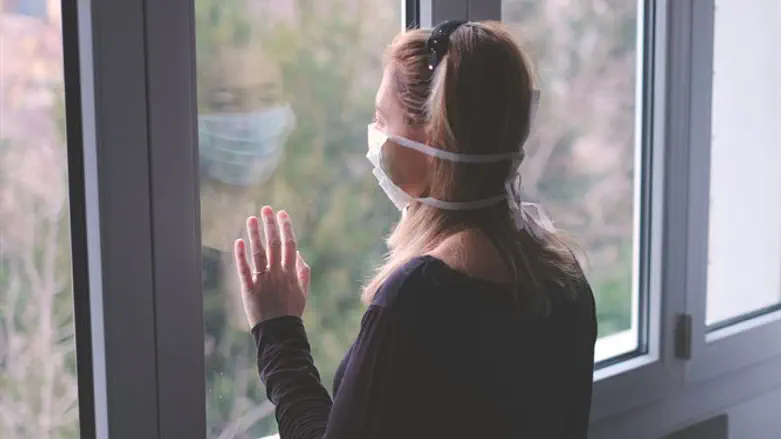
Quarantine, social distancing, lockdowns, coronavirus hotels - we’re struggling to adjust to these new norms imposed on us, both as a society and as individuals. But amidst the difficulties, there’s some important perspective to be found that can help us grow as human beings.
As a Counselor for children on the autism spectrum at Alei Siach, I find myself drawing connections between what people with autism experience on a day to day basis and the challenges of this new post-coronavirus reality.
Seeing patients sent to coronavirus hotels or stuck in isolation makes me think of the experiences of people with autism who can’t continue living at home. As the media shares stories of the coronavirus patients’ mental distress and loneliness, I think about how disorienting it must be for children and youth with autism placed in residential care to adjust to a new, foreign environment, away from their family units.
There’s been much discussion of how cumbersome masks are, how detrimental they are to understanding and comprehension. Many of us now find ourselves struggling with communication, unable to properly understand others or find ourselves frequently misunderstood by others.
This is a small taste of what children with autism experience day in and day out. The distraction caused by the mask is also an example of how some children on the autism spectrum experience the world - an overwhelming flood of stimuli that make it hard to focus.
We’re all eagerly looking forward to the day - a week, a month, a year from now - when a vaccine is announced. We’re sustained by the idea of finally going back to normal and resuming our previous lives. Many of us are counting on the distant hope of a cure on the horizon.
But people living with autism understand that their circumstances aren’t going to change. They know they won’t wake up one day to a different reality and will always face unique personal challenges, with some days being easier than others. We should learn from their example and focus on how we can practice acceptance and manage tough circumstances.
Having worked with many children on the autism spectrum, I want to take advantage of the increased public awareness about the harms of social isolation, and our deep human need for connection. Many, many families of children with autism feel detached from the rest of society and struggle to build social connections with other families, finding friendships to be daunting and difficult.
As a society, all of us must work to be inclusive of families of children with autism, and show them that they are valued, important parts of our communities. The next time you see a child on the autism spectrum, talk to him. I encourage you to interact with him, to greet him like you would any other child. Reaching out could have a huge impact on him.
At the end of the day, a child living with disabilities is still a child, in need of warmth and love. All of us - children, adults, and everyone else in between - are searching for human connection and acceptance.
Elchanan Westheim is a Counselor for children on the autism spectrum at Alei Siach, a Jerusalem-based nonprofit organization serving people with special needs and their families.